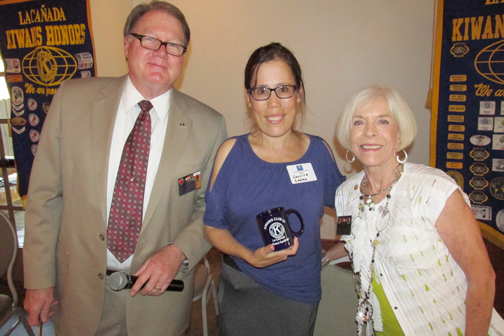
Laurice Levine from Children’s Hospital in Oakland recently visited the Noon Kiwanis Club of La Cañada sharing with members her life story of being a victim of thalassemia (Cooley’s anemia). Levine was born with thalassemia intermedia. Additionally, at 25 she was diagnosed with pulmonary hypertension. Because her body cannot manufacture sufficient hemoglobin, her heart could not keep up and she needed to receive blood transfusions. Twice a month, Levine receives two pints of blood and will continue to do so for the rest of her life.
“Prior to each transfusion, I say a prayer thanking each donor for giving me life,” said Levine, 43. “I also bless and wish each donor with continued life and good health.” Today, Levine remains an active and vital person in her community.
Research is being conducted on the disease that affects children of the Mediterranean region, including Italy, France, Greece and some Asian nations, including China. In addition to the hospital in Oakland, Children’s Hospital in Los Angeles also treats children afflicted with this genetic disease.
Thalassemia is an inherited disorder that affects the production of normal hemoglobin (a type of protein in red blood cells that carries oxygen to the tissues of the body). Thalassemia includes a number of different forms of anemia. The severity and type of anemia, including beta thalassemia, depends on the number of genes affected.
How these genes are altered determines the specific type of beta thalassemia in a child. People with thalassemia minor have a 50/50 chance to pass the gene to their offspring, who would also have thalassemia minor. Many people are given iron replacement under the mistaken belief that their anemia is the iron-deficient type.
The Italian Catholic Federation has been a major contributor to research efforts of over 25 years, having contributed over $1 million with research for a cure for thalassemia its major charitable focus.
Those interested in securing further information can contact Levine at UCSF Benioff Children’s Hospital at (510) 428-3347.
